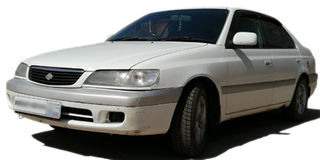How can I know that my engine needs overhauling?

Hello Paul, my Toyota Premio 1998 model with 174,000kms is not able to gain speed easily. It shakes and cuts power when driving up a hill and when I accelerate, it smokes. The mechanics have changed the fuel filter, spark plugs and engine oil. The car is getting worse and now they say the engine needs overhauling. How can I be sure that they are correct? Monica
Hello Monica, often, there are telltale signs that your engine might need rebuilding. Some problems might require replacing a few parts.
Delay to repair may worsen the condition and warrant replacement of more engine parts and a more expensive job. A stitch in time saves nine.
There are three major indicators of engine trouble; loss of engine power; loud engine noises and increasing exhaust smoke.
Loss of engine power can be detected when your car experiences delayed acceleration or trouble gaining speed or runs rough with erratic (unstable) idling.
There are other factors that can cause loss of engine power such as aged spark plugs, dirty fuel or air filters. These can be ruled out during inspection by an experienced mechanic.
An engine can lose power when it develops low engine compression.
Engine compression is when the piston squeezes the fuel air mixture volume in the remaining space of a cylinder during engine running.
The higher the compression of fuel air mixture, the higher the pressure before ignition and the more powerful the combustion from a given fuel charge. It is similar to how big a bang you get from how much you squeeze a balloon before deflation. The more you squeeze it, the bigger the bang.
When the engine piston rings wear out due to poor lubrication or age (synonymous with high mileage) there is loss of compression which tends to leak like blowing a balloon with tiny holes. This causes loss of power as the reduced compression of fuel air mixture produces weaker combustion.
A professional mechanic can determine low engine compression by carrying out a compression test using special tools. Loud engine noises such as banging, knocking and ticking can be indicators of a damaged engine with bad bearings or a damaged valve train. Fast moving engine parts can be damaged by failure of the lubrication system sometimes due to a poor oil service regime.
Excessive smoke from the exhaust pipe can be a sign of trouble, particularly if you see blue or white smoke.
Blue smoke is a result of the engine burning oil which tends to seep past damaged piston rings into the combustion chamber where it is burnt. White smoke is a sign of the engine burning coolant which seeps into the combustion chamber due to a damaged cylinder head or gasket. The above conditions require immediate attention to avoid further damage and costlier repairs.
Visit a professional mechanic as soon as you see these symptoms to assess the extent of damage and intervention required.




